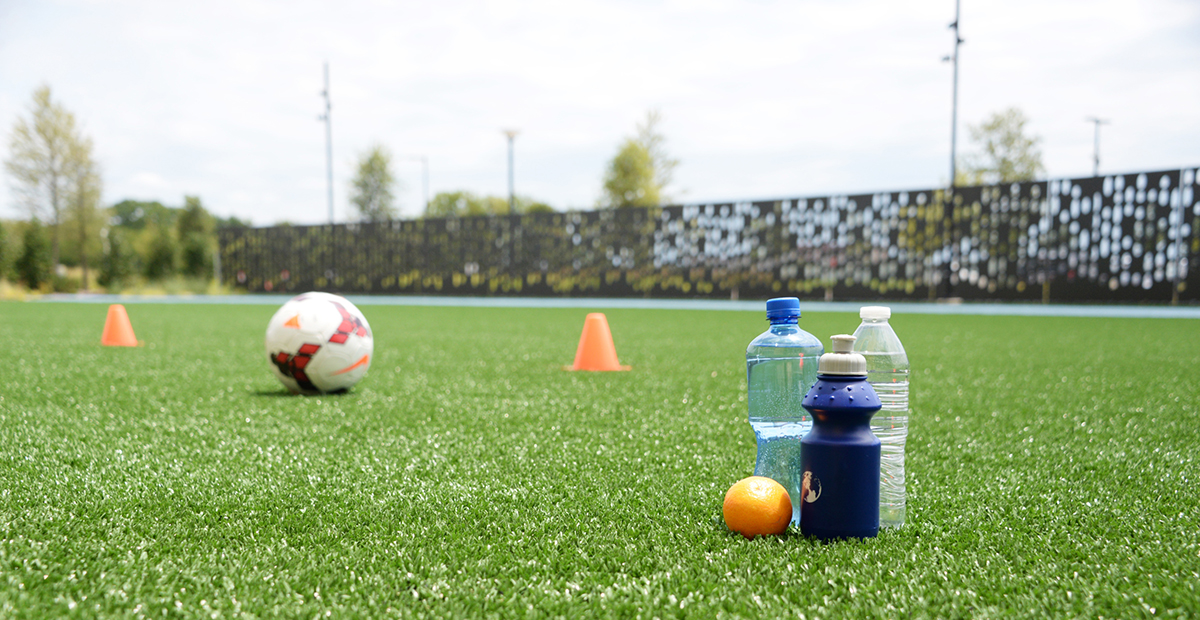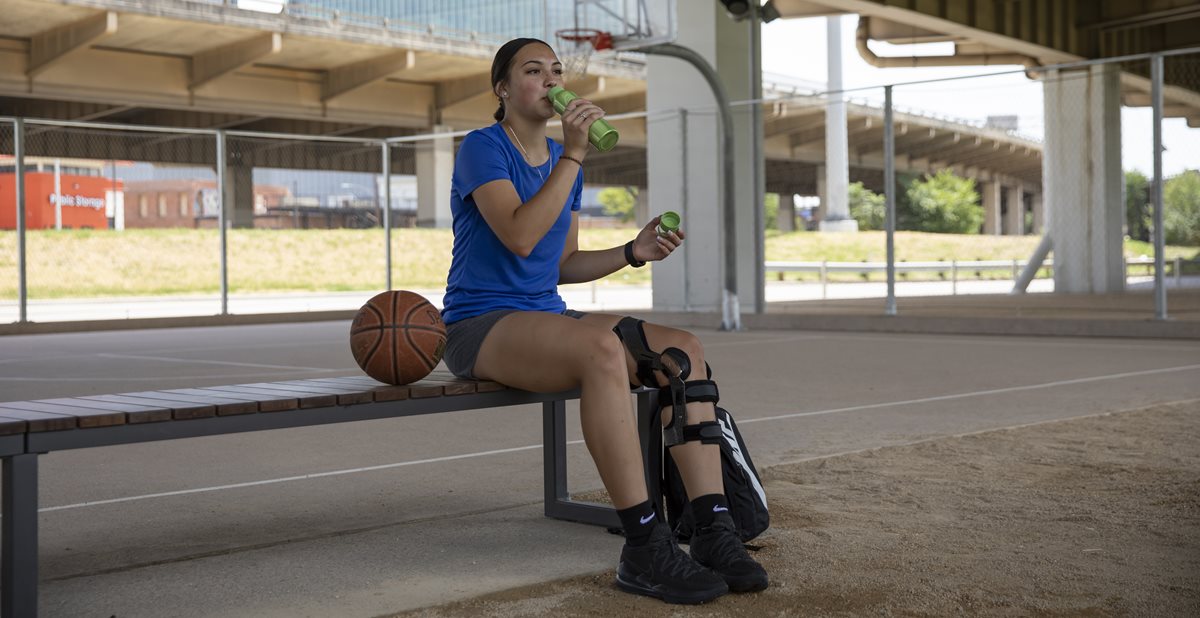
Feb 23, 2022 / Sports Medicine
Dietary Supplements: Q & A with a Sports Dietitian
What is a nutritional supplement?
A supplement is a vitamin, mineral, herb or botanical, amino acid or enzyme found in tablets, capsules, powders, drinks and energy bars.
How do you talk to young athletes about supplements?
I always talk with my athletes in clinic about safe supplements. I do this, first, because I feel developing kids and teens need to know what they are putting in their body and learning how to evaluate products and suppliers helps them be sure the label is accurate. Contaminants could be harmful to anyone, but especially to a child or teen. Secondly, I always discuss this with elite athletes who have committed to play collegiately because I know that once they get to college all supplements will be reviewed by the team sports registered dietitian and they will be held accountable for everything they are putting in their body. Not only are these potentially physically harmful, but consuming contaminants, even unknowingly can also affect eligibility.
Simply saying "I didn't know" after a positive test will not hold up. If you test positive for an illegal/ restricted substance you are disqualified or otherwise penalized. There have been handfuls of past news stories about professional, collegiate or Olympic athletes who were suspended due to banned substances. I feel that it is important to go ahead and start this conversation with elite athletes now so that it's not new when they get to college.
If someone decides to take supplements, how can you make sure it is safe?
Some organizations offer quality testing on supplements and a few provide a seal of approval on the product if the supplement meets requirements. These organizations monitor the manufacturing facilities for compliance with the Federal Drug Administration (FDA) Good Manufacturing Practices. They also regularly screen supplements for banned ingredients such as steroids, hormones and stimulants to ensure a consistently pure and safe product.
If an athlete chooses to use a supplement, the entire training team including but not limited to coaches, athletic trainers, sports dietitian and parents should be aware and help the athlete in making sure what he/she is taking is clean and age appropriate.
I also remind young athletes and parents that research is still lacking and unclear on the safety and effectiveness on many supplements for children and teens. Supplements that have proven effective for adult athletes may not be approved as safe or even effective for kids and teens because of their stage of development. We need to remember that they are not just small adults.
What are alternatives to taking supplements?
I think it is important to try and choose food first. If you feel your athlete cannot tolerate specific food groups, a health care team may agree that a supplement may be needed. In this special case you should speak with your child’s health care team, including a physician or registered dietitian. However, a well-designed sports diet should provide all of the needed calories and nutrients that a young healthy athlete needs to fuel his or her body for optimal training and performance.
Questions to ask when considering adding a supplement for a young athlete:
1. What is the problem or issue a supplement might solve?
2. What is the ingredient/nutrient you are considering taking to help with the problem?
3. Can the ingredients in the considered supplement be consumed by eating food instead?
4. Is the ingredient/nutrient on the list of banned substances?
5. Has the ingredient/nutrient been tested in a large population of children / teens and been proven safe and effective?
6. Has the supplement been proven effective for intended sport outcomes in well-designed studies?
7. Has the product or brand that you are looking at purchasing been reviewed by an approved third-party agency and found to be clean?
Download Resources for Sports Nutrition.
Call 469-515-7100 schedule an appointment with a Scottish Rite sports medicine physician or email sportsmedicine@tsrh.org invite Taylor to give a nutrition clinic for your organization or school.



